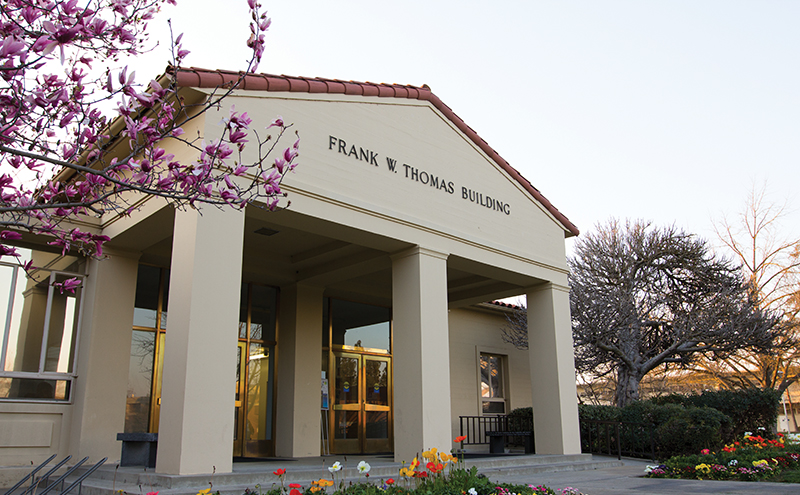For alumnus Luis Flores, his first year at Fresno State was a difficult journey as he underwent physical rehabilitation and mental counseling as a result of a car accident.
The accident nearly killed Flores. He flatlined twice during surgery that left him paralyzed for months. Doctors told Flores he might never walk again.
“As you can imagine, that was very devastating, not only emotionally but within my self-esteem and my motivation. This affected my performance because I refused to ask for help. I have no sense of direction,” said Flores.
Flores was one of four speakers in the virtual panel hosted by the Fresno State Cross-Cultural and Gender Center (CCGC) on Feb. 24.
The purpose of the discussion was to shed light on the journey and challenges men of color faced in academia as well as to celebrate diversity on campus. This was the second such panel the CCGC hosted.
The panel featured four faculty and staff members who shared stories and experiences about their journey in higher education during the hour and a half-long Zoom session.
The panelists included assistant professor Everett Vieira, assistant professor Mario Banuelos, research and grant analyst Edgar Parrilla and Flores, director of the TRiO Student Support Services/Disabilities.
Estevan Parra Guerrero, the coordinator for the CCGC, hosted the session.
The virtual forum served to encourage men in higher education to seek help and resources available to them at the university that they might not be aware of, contributing to the difficulties men of color face.
“I changed my major like three times, and I wasn’t aware of the resources Fresno State had to offer even though I was a student with disabilities. I never seek accommodations… whether it was my visible or invisible disability,” said Flores.
He credited the educational opportunity program (EOP) and special support programs at Fresno State for helping him to graduate with a bachelor’s in psychology and eventually his master’s in counseling with an emphasis in marriage and family therapy.
“I can now say with confidence that if it wasn’t for EOP, there’s no way I would have graduated. Having to go to therapy and rebuild myself and having guidance from counselors, it helped me regain a passion for helping others which is a credit to [being] the reason why I majored in psychology,” said Flores.
The majority of the panelists were sons of immigrants as well as being first-generation college students. Many of them had difficulties navigating through the educational system as they had few people whom they could reach out to for help.
Banuelos felt discouraged as often he would be the only person of color, especially in the field of mathematics and with little community support.
“Some specific challenges that I’ve encountered [have] been being the only man of color in the room, especially in math, [and] being overlooked for opportunities. And probably the hardest one is maybe having difficulty finding a community to support you,” Banuelos said.
Guerrero closed the virtual forum with his thoughts on the lack of representation of people of color in academia.
“Where’s the faculty at? I thought this was a Spanish-oriented institution. What does that even mean?” Guerrero said.
At Fresno State, 52.7% of students identify as Hispanic or Latino.
“I’m not seeing it on my mission statements… murals, the art, symbols, visuals that represent my skin color, my ethnicity, my people. I’m not seeing that, and I’ve been on this campus as an undergraduate, graduate and now a professional staff member here,” said Guerrero.




